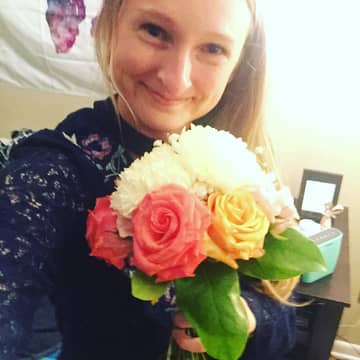I remember the day I began to separate from my thinking. It was overwhelming to say the least. Suddenly it felt like my mind was being invaded by a loud voice that was only full of criticism, negativity and judgment. I honestly cannot tell you, after all these years, what happened to make me “zoom out” and separate from that voice. As scary as it was, I am grateful that it happened because for the first time I began to see that the negative critic was my disorder. I had spent years blindly listening to it, believing it and letting it tell me what to do. I felt scared. How do I get this voice to go away? Most importantly, how do I stop believing it?
The critic
What I can say is that this voice, “the invader,” has not gone away, but thanks to tools, therapy and support from community, it has much less power and influence than when I first began my journey out from under it. These tools have helped to save my life and take practice to use them. It was far from easy and comfortable, and doing this work has been vital and necessary for my healing. That is the double edge of recovery, so to speak. It didn’t seem fair that my family, culture and society helped to install this voice in my head and now I had to do the work to challenge it. I was told once by a fellow traveler in recovery that on the other side of this pain was the priceless gift of wisdom. I now know what he meant. This wisdom has been the most powerful tool not just for my recovery but for building a life worth living in the space between that voice and who I really am.
Judgment
The hardest hurdle when it came to challenging this thinking was self-judgment. There was so much shame in my relationship with myself. Shame is the feeling that I am the flaw, I am the mistake, or something is wrong with me for thinking and feeling this way. The best way I can describe shame is that it is like making a mess out of a mess rather than asking for help to clean it up. I had to counter this judgment and shame with radical acceptance. Can I meet this critical voice and thoughts with curiosity rather than blame and judgment? While my eating disorder and addiction offered a temporary escape from these beliefs and feelings, acceptance and curiosity allowed me to challenge them, to learn from them and to ultimately change them. I have learned that shame is never helpful. It is useless and limiting. Now when I catch myself in shame around thoughts or situations, I become curious and ask myself questions rather than let the shame bash me or make a bigger mess.
Getting present
While I have heard many times that there is no destination in recovery, I have discovered that there kind of is. The destination is to be present. When I am in a spiral with critical thinking, judgments or shame I have learned to practice getting mindful and present. Here’s what has helped:
- Taking inventories on paper has really helped me to understand how to get present and begin a different set of actions.
- One saying I keep top of mind is, “I have to act my way into thinking differently, not think my way into acting differently.”
- Acceptance has helped me to recognize that when I am being critical or judgmental, something is being triggered.
- Getting present allows me room to question and challenge the thoughts or beliefs that are wanting me to “act out.”
- I ask myself: is this kind, is it helpful, is it loving, would I say this or believe it for someone else, what is the source, what is the truth based on my values?
Change happens over time and with a lot of learned self-compassion. Change happens in the present. As with anything else in recovery or even life, it is okay to reach out and ask for help when the thoughts or feelings are too much for me to handle by myself.
It takes practice
One tool that continues to help me in my recovery is taking a daily inventory – that is, on days that I remember that this tool is available. Especially on challenging days where life proves far from easy even in recovery, this tool of taking inventory helps me to see the good, the helpful, and the healing moments. I ask myself,
- Where was I kind?
- Where was I considerate?
- Where did I show up and contribute to the day?
If I was struggling, I can get curious as well.
- What was bothering me? Is there a fear underneath whatever situation or thought was making me judgmental or negative?
- Can I give myself permission to be human and encourage myself as I would a friend or peer?
- Can I let go of whatever thoughts or feelings are coming from shame?
The biggest gift of learning to challenge my thinking has been the realization that thoughts and feelings are not facts. I can be thinking and feeling a certain way and still be doing okay. How I am doing is not the same as how I am feeling or what I am thinking.

